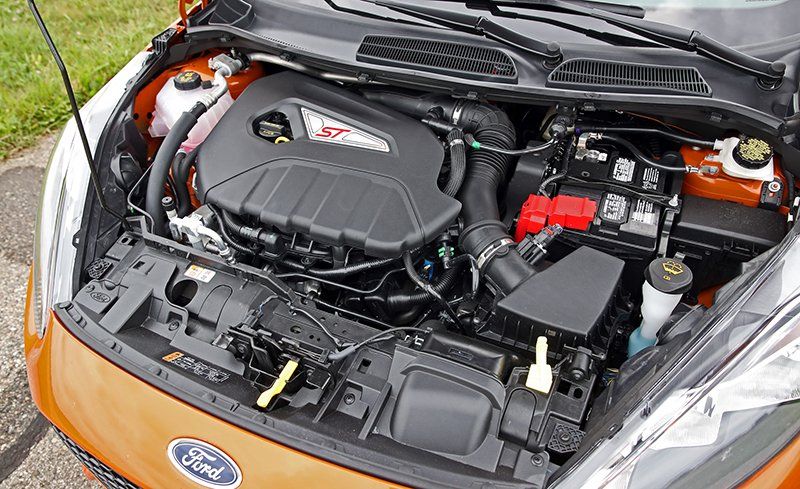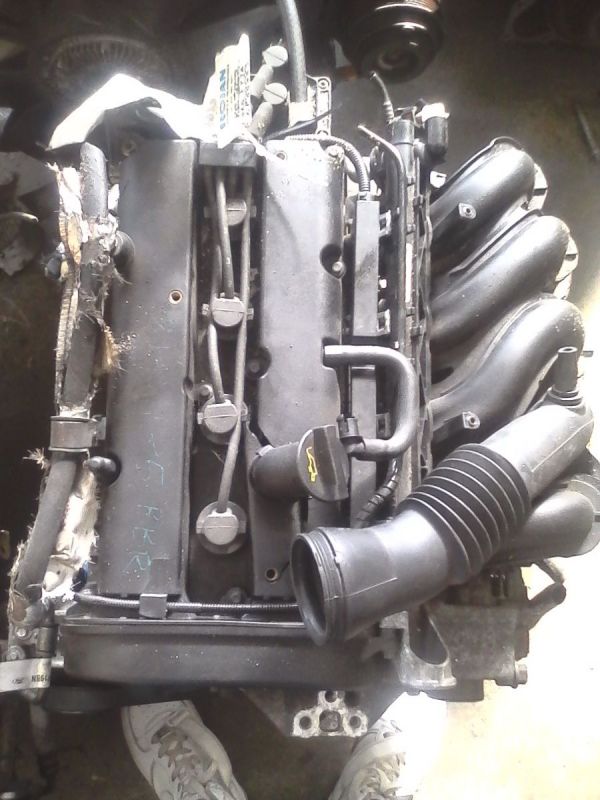The Role of a Quality Ford Fiesta Engine in Vehicle Performance
Wiki Article
Opening the Power of Engines: A Comprehensive Overview to Performance and Performance
Comprehending the detailed mechanics of engines is crucial for both efficiency lovers and day-to-day motorists. By analyzing vital metrics such as horsepower and torque, one can appreciate exactly how adjusting techniques improve performance while dealing with environmental problems. Moreover, routine upkeep plays a crucial role in sustaining optimum efficiency over time. As the auto landscape shifts towards electrification and progressed innovations, the inquiry emerges: just how can we effectively adapt to these adjustments while taking full advantage of engine capacities? The solutions might redefine our strategy to engine efficiency and efficiency in means that are both enlightening and important.Comprehending Engine Fundamentals
What constitutes the basic technicians of an engine? At its core, an engine is a maker developed to transform gas into mechanical energy via a series of controlled surges or burning procedures.The crankshaft then transforms this linear movement right into rotational power, which eventually powers the lorry. The camshaft controls the opening and closing of the valves, regulating the consumption of air and fuel and the expulsion of exhaust gases. In addition, the engine depends on a meticulously calibrated fuel-air mix, ignition system, and cooling down system to make sure optimal efficiency and efficiency.
Comprehending engine essentials also entails recognizing the value of engine cycles, such as the four-stroke cycle, that includes consumption, exhaust, power, and compression strokes. Each stage is critical in making sure the engine functions smoothly and properly. Mastery of these essential mechanics lays the groundwork for discovering much more intricate engine dynamics and efficiency metrics, essential for enhancing both power result and efficiency.
Secret Performance Metrics
Secret efficiency metrics are crucial for assessing an engine's performance and power output, supplying valuable insights for both customers and manufacturers. These metrics function as benchmarks for engine performance, permitting notified choices in manufacturing, design, and investing in.Among the primary metrics is horsepower, which quantifies the engine's ability to carry out work over time. Torque, determined in pound-feet, is one more vital statistics that suggests the engine's rotational pressure, straight influencing velocity and lugging ability. Gas effectiveness, usually determined in miles per gallon (MPG) or liters per 100 kilometers (L/100km), examines exactly how effectively the engine converts gas into activity, impacting functional prices and environmental factors to consider.
Furthermore, thermal efficiency measures just how well an engine transforms fuel energy right into valuable work, exposing insights right into energy losses primarily through heat. Emission degrees, including carbon dioxide and NOx, are additionally critical, mirroring the engine's environmental impact and conformity with regulative criteria.

Tuning Techniques for Effectiveness
Tuning strategies play a substantial role in enhancing engine efficiency by maximizing efficiency metrics identified in earlier conversations (ford fiesta engine). Numerous approaches exist to make improvements an engine, each contributing to enhanced gas economy and decreased emissionsOne effective technique is adjusting the air-fuel proportion, guaranteeing the engine operates within the optimal combustion regime. A leaner mixture can boost fuel effectiveness, but it must be balanced to avoid misfires or engine knock. In addition, reprogramming the engine monitoring system can alter specifications such as ignition timing, which even more improves performance while keeping power outcome.
Another vital approach entails changing the intake and exhaust systems. Upgrading to high-performance air filters and exhaust headers can lower back stress, helping with much better airflow. This permits the engine to take a breath more openly, bring about boosted combustion effectiveness.
In addition, the execution of sophisticated tuning devices, like dyno screening, supplies specific data that allows targeted adjustments. On a regular basis checking these performance metrics ensures that adjusting efforts produce the preferred efficiency end results. Collectively, these strategies not only strengthen engine performance yet likewise add to long-lasting sustainability in engine operations.
Upkeep for Optimal Efficiency
Routine engine maintenance is crucial for accomplishing optimum performance and durability. A well-maintained engine not just operates effectively yet likewise decreases the risk of expensive repair work and failures. Key elements calling for regular interest consist of oil, filters, belts, and ignition system.Transforming the engine oil at recommended intervals is important, as oil lubes moving components and avoids getting too hot. Similarly, replacing oil and air filters makes sure that impurities do not harm engine function. Ignoring these parts can lead to minimized performance and possible engine damages.
Visit Your URL Additionally, checking and changing used belts and pipes is important to avoid sudden failings. Timing belts, in certain, ought to be changed according to the manufacturer's schedule to prevent tragic engine damages.
Flicker connects must also be checked and replaced as necessary, considering that they play special info a crucial duty in ignition and gas performance.
Future Patterns in Engine Innovation
Welcoming developments in technology, the future of engine layout is positioned to reinvent efficiency and efficiency across different applications. One of the most significant fads is the change toward electrification. Hybrid and fully electrical powertrains are coming to be significantly conventional, supplying lowered exhausts and boosted fuel effectiveness. This shift is not simply a requirement but a trend driven by governing pressures and consumer demand for lasting remedies.Furthermore, technologies in materials scientific research are causing lighter, more powerful components that boost engine performance while minimizing energy usage. Advanced manufacturing techniques, such as 3D printing, permit the development of intricate geometries that improve air movement and thermal management, therefore optimizing burning processes.
In addition, the integration of expert system and device learning is set to transform engine diagnostics and navigate to this site efficiency adjusting. These innovations can assess large amounts of data in actual time, making it possible for predictive upkeep and tailored performance improvements.
Final Thought
In final thought, unlocking the power of engines requires an extensive understanding of their auto mechanics and performance metrics. Executing effective tuning methods and sticking to regular upkeep methods substantially improve engine abilities.Additionally, the engine counts on a carefully adjusted fuel-air mix, ignition system, and cooling system to make certain optimal efficiency and effectiveness.
Understanding engine basics likewise involves acknowledging the relevance of engine cycles, such as the four-stroke cycle, which consists of consumption, exhaust, power, and compression strokes. Proficiency of these fundamental technicians lays the groundwork for checking out more intricate engine dynamics and efficiency metrics, vital for maximizing both power outcome and performance.

Welcoming advancements in technology, the future of engine design is positioned to reinvent efficiency and effectiveness across various applications.
Report this wiki page